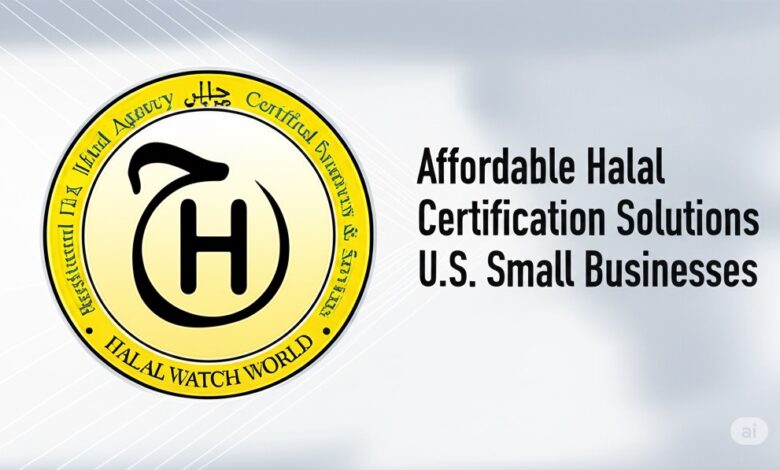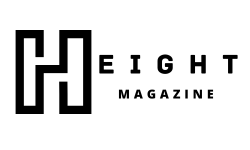Affordable Halal Certification Solutions for U.S. Small Businesses

The halal food market in the United States has experienced remarkable growth, reaching an estimated value of over $26 billion and continuing to expand at an annual rate of 6-8%. This surge presents tremendous opportunities for small businesses, but many entrepreneurs struggle with the complexities and perceived costs of obtaining halal certification. Understanding affordable certification pathways can be the key to unlocking this lucrative market segment.
Understanding the Halal Market Opportunity
The American Muslim population, numbering approximately 3.3 million, represents a significant consumer base with substantial purchasing power. However, the halal market extends beyond Muslim consumers, attracting health-conscious individuals who associate halal products with cleaner, more ethical food production practices. This broader appeal creates additional market opportunities for certified businesses.
Small businesses often assume halal certification is prohibitively expensive or overly complex, but this misconception prevents them from accessing a growing market. The reality is that various certification bodies offer scalable solutions designed specifically for smaller operations, making halal compliance more accessible than ever before.
Breaking Down Certification Costs
Halal certification costs vary significantly based on business size, product complexity, and certification body requirements. For small businesses, initial certification fees typically range from $500 to $3,000, with annual maintenance costs between $300 and $1,500. These figures represent a fraction of potential revenue increases from accessing halal markets.
The investment often pays for itself within months through increased sales volume and premium pricing opportunities. Many small businesses report revenue increases of 15-30% after obtaining halal certification, making the initial investment highly worthwhile.
Choosing the Right Certification Body
The United States hosts numerous halal certification organizations, each with different fee structures, requirements, and market recognition levels. Some focus on large-scale operations, while others specialize in supporting small businesses through streamlined processes and competitive pricing.
When selecting a usa halal certification body, small businesses should consider factors including recognition in target markets, audit frequency requirements, documentation complexity, and ongoing support availability. Some organizations offer tiered pricing based on business size, making certification more affordable for smaller operations.
Streamlined Certification Processes
Modern halal certification has evolved to accommodate small business needs through simplified application processes and flexible audit schedules. Many certification bodies now offer online applications, remote preliminary assessments, and consolidated documentation requirements that reduce administrative burden.
The typical certification timeline ranges from 4-12 weeks, depending on business complexity and preparation level. Small businesses can expedite the process by preparing documentation in advance, ensuring supplier compliance, and implementing basic halal management systems before applying.
Essential Documentation and Procedures
Successful halal certification requires maintaining specific documentation and procedures, but these need not be overwhelming for small businesses. Core requirements typically include ingredient specifications, supplier certifications, production flow charts, and cleaning procedures.
Small businesses benefit from starting with basic documentation systems that can evolve over time. Many certification bodies provide templates and guidance specifically designed for smaller operations, reducing the complexity of initial setup while ensuring compliance standards are met.
Ingredient Sourcing Strategies
One of the most challenging aspects of halal compliance involves ingredient sourcing, particularly for small businesses with limited purchasing power. However, the growing halal market has led to increased availability of certified ingredients from mainstream suppliers.
Small businesses can reduce costs by partnering with other halal-certified companies for bulk purchasing, utilizing certified ingredient distributors, and building relationships with suppliers who understand halal requirements. Many ingredient suppliers now offer halal certification as a standard service, eliminating additional sourcing complexities.
Technology Solutions for Compliance Management
Digital tools have revolutionized halal compliance management, offering affordable solutions that were previously accessible only to large corporations. Cloud-based systems now provide document management, supplier tracking, and audit preparation capabilities at costs suitable for small businesses.
These technological solutions often include automated alerts for certification renewals, supplier compliance monitoring, and documentation organization features that significantly reduce administrative overhead while maintaining compliance standards.
Marketing Certified Products
Obtaining halal certification is only the first step; effectively marketing certified products requires understanding target demographics and appropriate messaging. Small businesses often achieve the best results through community engagement, social media marketing, and partnerships with halal-focused retailers.
Certification logos and messaging should be prominently displayed on packaging and marketing materials. Many small businesses find success by participating in halal food festivals, partnering with Islamic community centers, and leveraging social media to reach target audiences effectively.
Building Supplier Relationships
Strong supplier relationships are crucial for maintaining halal compliance while controlling costs. Small businesses should prioritize working with suppliers who understand halal requirements and can provide necessary documentation without extensive back-and-forth communication.
Developing long-term partnerships with certified suppliers often leads to better pricing, priority service, and streamlined compliance processes. Many small businesses benefit from joining purchasing cooperatives or industry associations that facilitate connections with halal-compliant suppliers.
Ongoing Compliance Management
Maintaining halal certification requires consistent attention to procedures, documentation, and supplier compliance. Small businesses can manage ongoing requirements efficiently by implementing simple monitoring systems, conducting regular internal audits, and maintaining open communication with certification bodies.
The key to sustainable compliance lies in integrating halal requirements into standard operating procedures rather than treating them as separate, additional tasks. This approach reduces workload while ensuring consistent compliance across all business operations.
Financial Planning and ROI Considerations
Small businesses should approach halal certification as a strategic investment with measurable returns rather than simply a compliance cost. Proper financial planning includes budgeting for initial certification fees, ongoing maintenance costs, and potential operational changes required for compliance.
Most small businesses recover certification investments within the first year through increased sales volume, access to new distribution channels, and premium pricing opportunities in halal markets. Long-term benefits often include brand differentiation, customer loyalty, and expansion opportunities into international halal markets.
Common Challenges and Solutions
Small businesses frequently encounter specific challenges during the certification process, including complex documentation requirements, supplier compliance issues, and ongoing monitoring obligations. However, these challenges are manageable with proper preparation and support from experienced certification bodies.
The most successful small businesses approach certification systematically, addressing requirements incrementally rather than attempting to implement everything simultaneously. This approach reduces overwhelm while ensuring thorough compliance with all requirements.
Future Market Trends
The halal certification landscape continues evolving, with increasing standardization, technological integration, and recognition across mainstream markets. Small businesses entering the halal market now position themselves advantageously for continued growth as consumer awareness and demand expand.
Emerging trends include blockchain-based supply chain tracking, automated compliance monitoring, and increased integration between halal and other certification systems such as organic or non-GMO certifications. Small businesses that embrace these developments often gain competitive advantages in expanding markets.
Taking the Next Steps
Small businesses interested in halal certification should begin by researching certification bodies that specialize in supporting smaller operations, assessing current operations for compliance readiness, and developing realistic timelines for implementation.
The journey to halal certification may seem daunting initially, but with proper planning, appropriate support, and understanding of available resources, small businesses can successfully navigate the process while positioning themselves for significant growth in the expanding halal marketplace.
Success in halal markets requires commitment to compliance standards, understanding of target consumers, and strategic approach to certification and marketing. Small businesses that embrace these elements often discover that halal certification opens doors to opportunities far beyond their initial expectations, creating sustainable competitive advantages in diverse markets.
For detailed guidance on halal certification processes, certification body comparisons, and compliance resources specifically tailored for small businesses, visit halalwatch.us – your comprehensive resource for halal market success.




